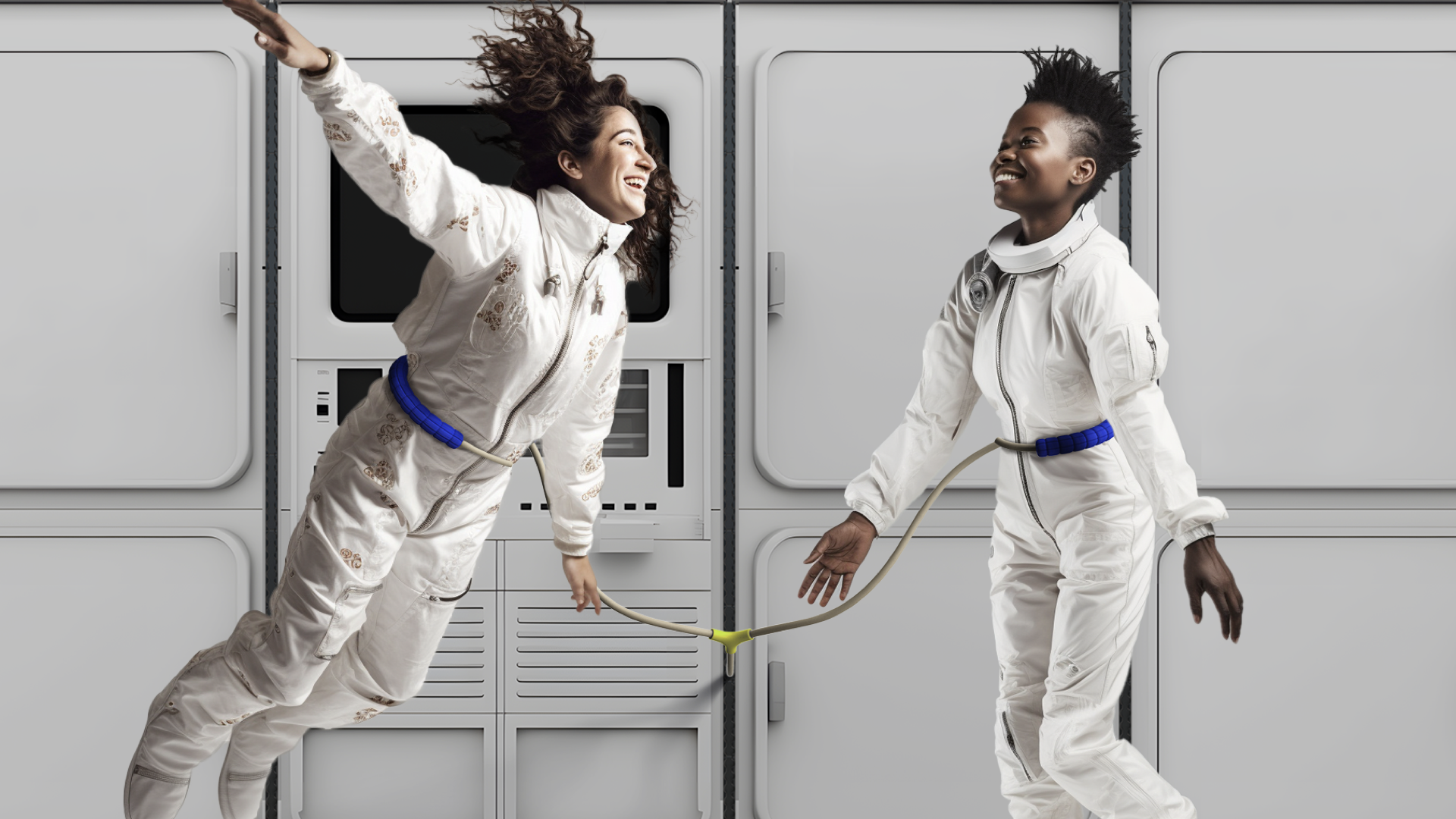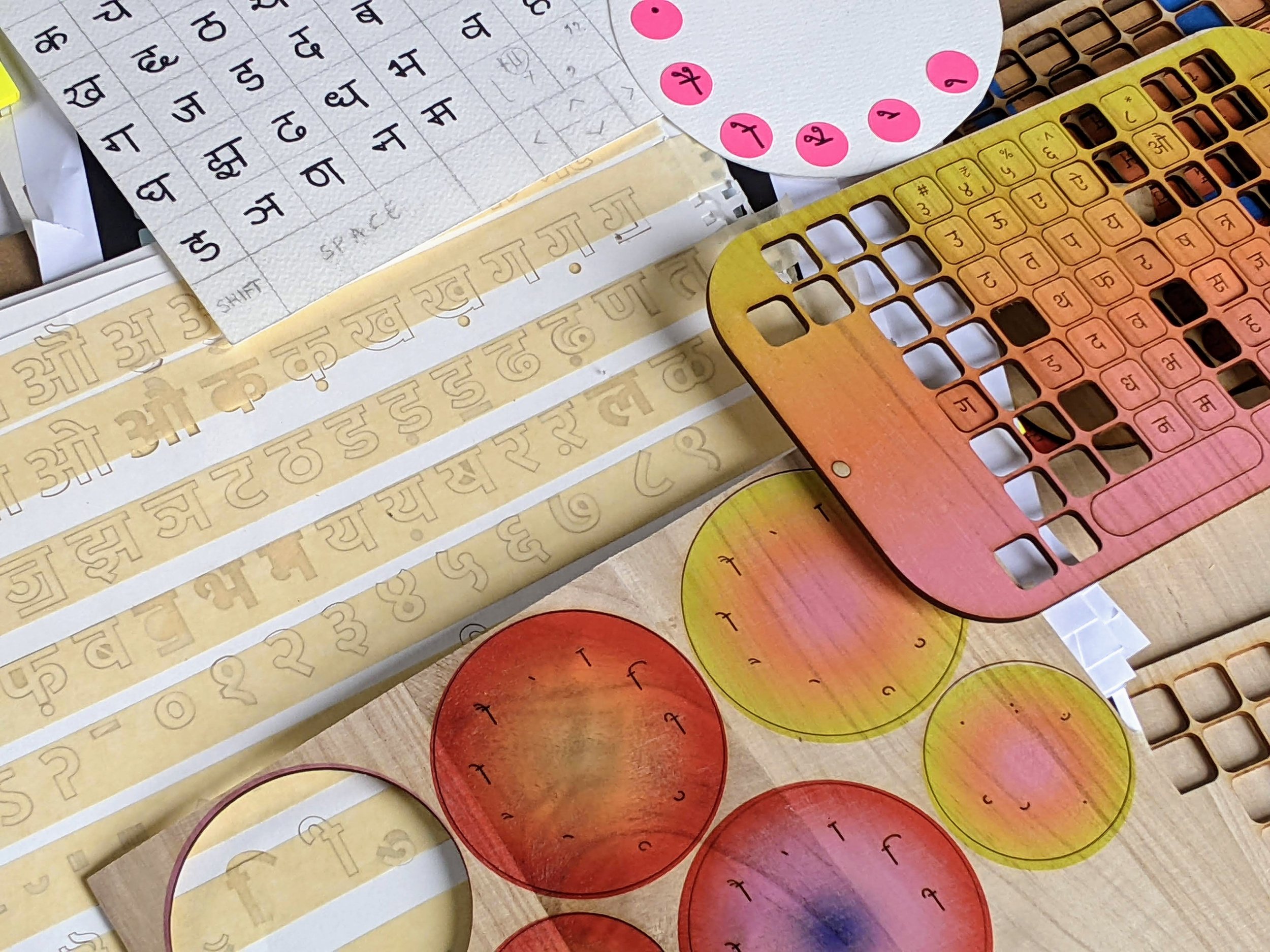
Student Projects
Products, Mobile Apps, Platforms, Thesis Work, and Design Thinking.
Applications are open! Deadline Jan. 15
〰️
Applications are open! Deadline Jan. 15 〰️
Featured Projects
Latest Projects
Let's Talk Periods: Practicing Menstrual Confidence Through Conversations
Sama Srinivas' thesis, Let's Talk Periods: Practicing Menstrual Confidence Through Conversations, creates a variety of opportunities for menstruators and their communities to practice and build menstrual confidence through interventions such as literacy, humor, celebration, and love languages.
Democratizing Bharatnatyam: Investigating the Interplay Between Dance and AI
Yukti Arora's thesis, Democratizing Bharatnatyam: Investigating the Interplay Between Dance and AI, explores how Artificial Intelligence can bridge the gap in learning Bharatnatyam, a 2500-year-old Indian classical dance form, for today's dancers. Despite over twenty years of training under a renowned dancer since age four, Yukti felt a significant learning gap. Her survey of over 300 Bharatnatyam dancers, ages 18-45, spanning two countries, revealed that 97% shared similar learning gaps, with 92% discontinuing regular practice as they grew older due to various life commitments.
Driven by her background as a designer and inspired by AI's prowess in recognizing patterns, Yukti embarked on a journey to democratize Bharatnatyam. Collaborating with Bharatnatyam dancers and AI experts, she developed a suite of four AI-powered interventions—products, services, experiences, and platforms—to address this challenge and make Bharatnatyam more accessible to all.
Beyond the Right Stuff: Designing for Disability Inclusion in Space
Corey McClelland's thesis, Beyond the Right Stuff: Designing for Disability Inclusion in Space, centers around researching the challenges and opportunities of designing for disability inclusion in space. One major challenge is the lack of accessibility in space technology and infrastructure, as many tools and equipment used are not designed with the needs of individuals with disabilities in mind. Another challenge is the lack of representation of individuals with disabilities in the space industry. However, initiatives like AstroAccess and other disability-inclusive projects have pushed for change and increased industry representation. Corey's research has shown that individuals with disabilities have unique skills and perspectives that can be leveraged to create innovative solutions to space exploration challenges. The push for disability inclusion in space can also lead to a more accessible and inclusive society as a whole.
Well-rounded: Using Art to Enhance Interdisciplinary Learning
Cathy Tung's thesis, Well-rounded: Using Art to Enhance Interdisciplinary Learning, sheds light on the potential of art-integrated education to promote the development of hard and soft skills in children. Cathy highlights that traditional education, confined within classroom walls, can be mundane and unstimulating for children to engage with. Conversely, incorporating resources from art museums as a location-based learning tool can provide an interactive and engaging experience that presents opportunities for interdisciplinary learning. This approach can also address the budgetary constraints public schools face in providing adequate art education, particularly in the wake of the COVID-19 pandemic and the associated budget cuts.
How India Looks: Localizing Design Tools for a Billion People
For Charvi Shrimali, the inspiration for her thesis, How India Looks: Localizing Design Tools for a Billion People, was a famous proverb that her grandparents would often repeat to explain the diversity of their country. “कोस - कोस पर बदले पानी, चार कोस पर बानी” loosely translates as: “Every few miles, the water changes. Every four miles, the speech." India is a vast country with a population of 1.4 billion and counting. But its varied geographic, linguistic, economic, social, and cultural landscapes means each of these 1.4 billion individuals look, talk, eat, work, and live very differently from each other. This makes India a complex, diverse and complexly diverse country.
Bridged Reality: Using Technology to Nurture Distant Relationships
Felix Ho's thesis, Bridged Reality: Using Technology to Nurture Distant Relationships, explores how technologies can break the barrier for those who are dear to us but living far away. When living at a great distance, friends, family, and couples sometimes become estranged. In order to create a new capacity for connection to break the distance barrier, Felix began his thesis exploration with a high-tech intervention that allows users from different locations to have a shared low-tech experience that makes the user feel connected asynchronously.
Weighted: Designing Towards Fat Liberation
Margarita Zulueta’s thesis, Weighted: Designing Towards Fat Liberation, investigates how anti-fat bias affects fat-identifying women through the lens of design. Anti-Fat bias is the discriminatory belief that the social stigma against fat people, in the tradition of fat activists reclaiming the term, is justified. Anti-Fat bias is normalized and affects the 1.9 billion adults who are considered to fall within this group. Having experienced the pain of anti-fat bias in her own life due to falling within the small-fat to mid-fat range, Margarita explores and creates products of design to create structures that move towards fat liberation.
FireLink: Fighting Fire with Data
Theodore Scoufis developed FireLink, an information management ecosystem for firefighters that focuses on the 4 minutes and 30 seconds between receiving the call from dispatch and arrival on the scene. The purpose of the system is to provide firefighters with real-time insight into the conditions of the building they are responding to. Theodore explains that information gathered by FireLink allows firefighters to make more effective decisions more efficiently, which will reduce the threat to civilians, firefighters, and property. FireLink is a bifurcated system of data collection and information dissemination. Data is collected via the data standpipe and disseminated in two main modes: the Command Center tablet application and the helmet-mounted augmented reality heads up display (AR HUD).
WHEN NO ONE BELIEVES YOU: Redesigning the Rape Kit and Responses to Sexual Assault
Antya Waegemann’s thesis, When No One Believes You: Redesigning the Rape Kit and Responses to Sexual Assault, proposes six different design interventions for sexual assault victims, nurses and the police, to increase report rates, improve the experience of getting a rape kit, and increase rape kit testing, as well as to reduce stigma and shame around sexual assault and increase accountability.
UPGRADE: Designing for Access and Acceptability around Limb Loss and Limb Difference
The historical mindset towards people with physical disabilities has been one of pity and exclusion. While the notion of pity and exclusion is looked down upon in liberal societies, an understanding of what constitutes the objectification of people with disabilities, as well as a greater effort towards inclusion, is still not widespread. The voices of people with limb loss and limb differences (LL/D) are not part of an extensive ongoing conversation about their rights, needs and wants. Through her thesis Upgrade, Adya aims to create the conditions that lead to more open conversations about and with people with LL/D and their acceptance in society, as well as easier access to products and services that improve their quality of life.















